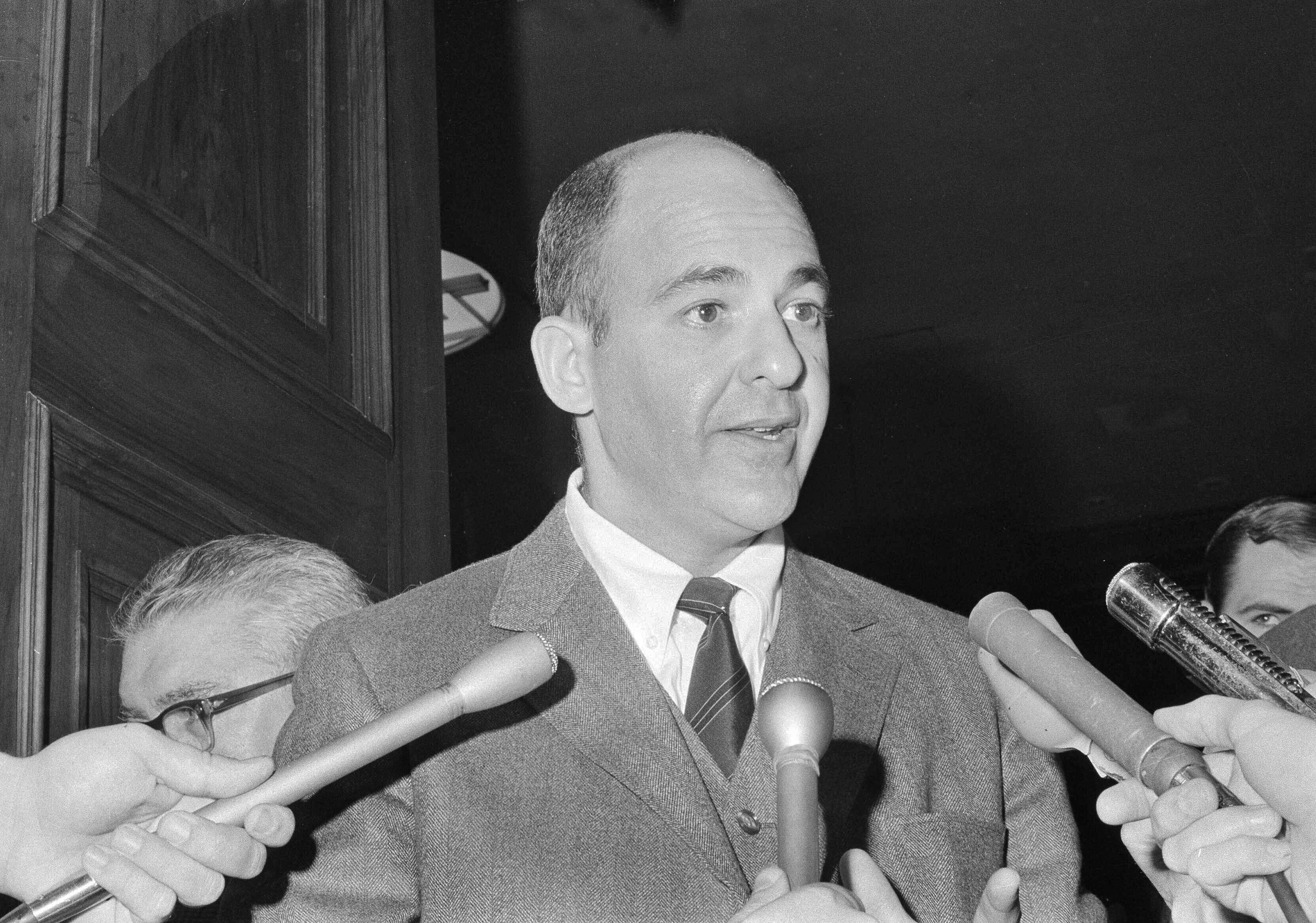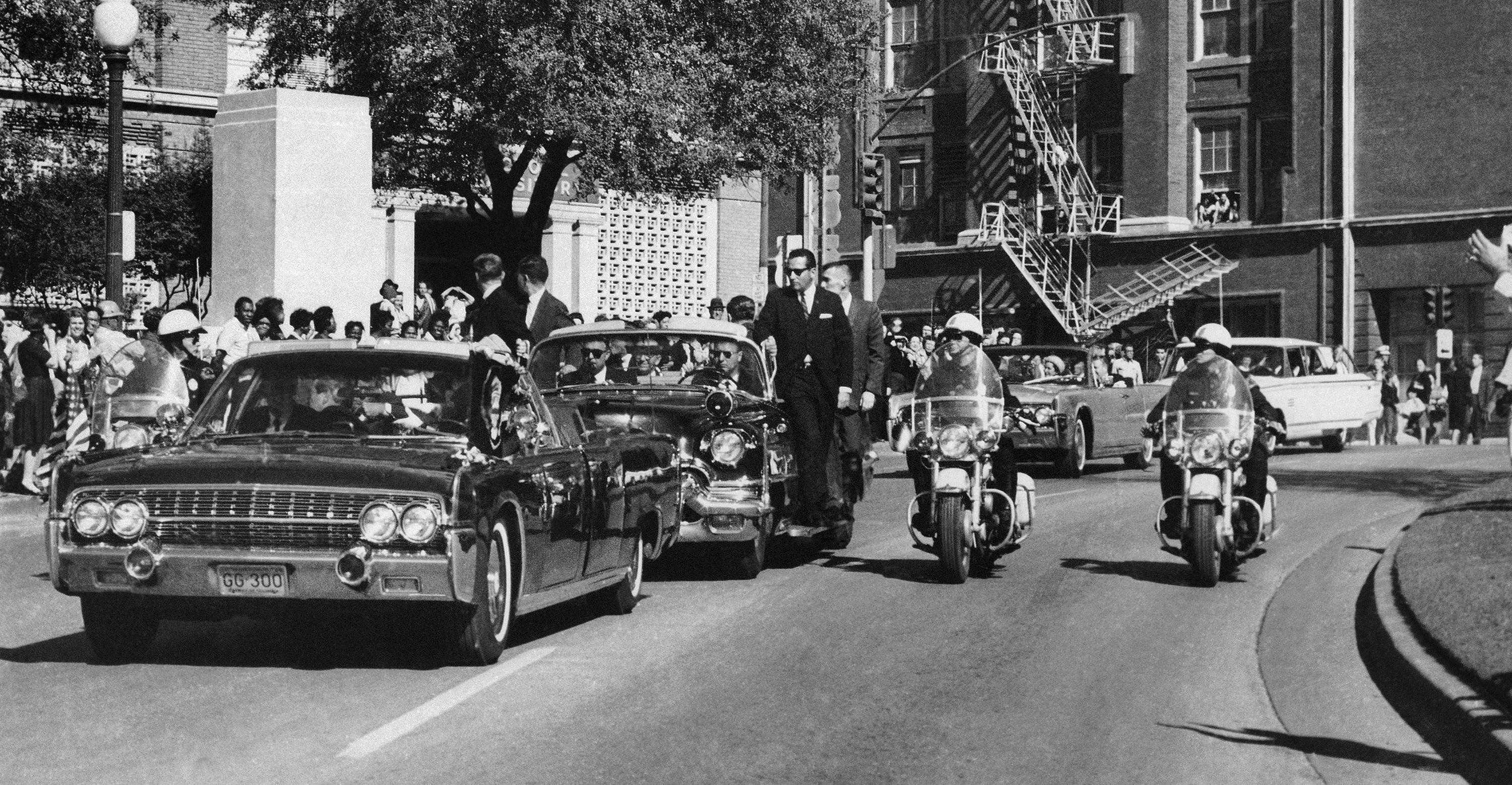Infamous pathologist who argued more than one shooter killed JFK dies at 93
The forensic psychologist worked on infamous murder cases throughout his career
Cyril Wecht, a pathologist and attorney who is best known for arguing more than one person was involved in President John F Kennedy’s 1963 assassination, died on Monday at 93.
Wecht’s death was announced by the Administrative Office of Pennsylvania Courts, which did not disclose a cause or place of death, saying only that he “passed away peacefully.”
Wecht’s almost meteoric rise to fame began in 1964, three years after he reentered civilian life after serving a brief stint at Maxwell Air Force Base in Montgomery, Alabama. At the time, Wecht was serving as an assistant district attorney in Allegheny County and a pathologist in a Pittsburgh hospital.
The request came from a group of forensic scientists: Review the Warren Commission’s report that concluded that Lee Harvey Oswald, acting alone, assassinated Kennedy.

Wecht, with his usual thoroughness, did just that — the beginning of what became a lifelong obsession to prove his theory that there was more than one shooter involved in the killing.
After reviewing the autopsy documents, discovering the president’s brain had gone missing, and viewing an amateur video of the assassination, Wecht concluded the commission’s findings that there was a single bullet involved in the attack that killed Kennedy and injured Texas Gov. John Connally was “absolute nonsense.”
Wecht’s lecture circuit demonstration detailing his theory that it was impossible for one bullet to cause the damage it did on that November day in Dallas made its way into Oliver Stone‘s movie “JFK“ after the director consulted with him. It became the famous courtroom scene showing the path of the “magic bullet.”
Attorney F. Lee Bailey called Wecht the “single most important spearhead of challenge” to the Warren report. Wecht’s verbal sparring with Sen. Arlen Specter, a staffer on the commission, also became well known, culminating in an accusation in his book “Cause of Death” that the politician’s support of the single-bullet theory was “an asinine, pseudoscientific sham at best.”

Yet, somehow, Wecht and Specter overcame their differences and developed something of a friendship, with the senator coming to the pathologist’s defense during a grueling, five-year legal battle that sapped him of much of his life’s savings and ended in 2009.
In the end, Wecht emerged victorious in that, as well when a series of legal maneuvers and judicial decisions forced prosecutors to drop all fraud and theft charges against him in a case that revolved around accusations that he had used his public post as Allegheny County medical examiner to further his multimillion-dollar private practice.
Then, in his 2022 bookThe JFK Assassination Dissected Wecht argued that Oswald had been under orders from CIA Director Allen Dulles.
Dulles had overseen the disastrous Bay of Pigs assault on post-revolutionary Cuba, launched in April 1961 with the aim of removing Communist leader Fidel Castro, and had been swiftly dismissed from office by President Kennedy after the operation’s humiliating failure.
Wecht argued that Dulles was so resentful over the episode that he groomed Oswald to execute Kennedy.
Wecht’s outspokenness on the Kennedy assassination, and the publicity he generated, later made him a go-to pathologist on dozens of other high-profile cases ranging from Elvis Presley to JonBenet Ramsey, the child beauty queen whose death remains unsolved.
At the homicide trial of school head Jean Harris, accused of murdering “Scarsdale Diet” Dr. Herman Tarnower, Wecht testified unsuccessfully for the defense. His testimony at the trial of Claus von Bulow may have helped acquit Von Bulow of charges he tried to kill his heir wife, Sunny.
After studying Elvis’ autopsy report, Wecht concluded, and shared his findings on national television, that the King of Rock had likely died of an overdose, not heart disease. His findings spurred Tennessee officials to reopen the case in 1994, though, in the end, the official cause of death remained unchanged.
In the months preceding the O.J. Simpson homicide trial in 1994, Wecht was a frequent talk show guest, conjecturing on the “Today” show and “Good Morning America” about the significance of blood samples and other evidence.

When Michael Jackson died in 2009, Wecht again took to the airwaves, discussing the deadly mix of drugs and sedatives that killed the King of Pop.
That same year, Wecht investigated the mysterious death of 32-year-old Clueless actress Brittany Murphy.
“What stood out to me was that here’s a young woman of 32 years old,” Wecht said of the case in 2020. “How could she have developed such an advanced state pneumonia and such an incredible state of iron deficiency? Where in the world was her mother, her husband? Why didn’t she receive proper medical care?
“I was just puzzled by all of it,” he continued. “She had the financial means to see a doctor. And then she had prescriptions to strong opiates. It was very perplexing.”
Though he spent more than five decades dealing with death on an almost daily basis, Wecht managed to remain generally upbeat, his hearty laugh rumbling from deep within his gut, often humoring himself with his own, sometimes insulting and caustic, jokes.
Still, in a series of interviews with The Associated Press in 2009, Wecht was circumspect, dwelling on the possibility of his own death. His biggest fear, he noted at the time, was suffering or becoming dependent on others on friends and family.
“I want to be alive when I die. Think about that,” Wecht said. “I mean, OK, what is life?”
It’s key, he said, to die recognizing those you love, because when you die, they won’t be there anymore.
“I will be separated from my wife and my children and my grandchildren and, someday, my great-grandchildren. That’s what death means to me,” Wecht said.
“I’d like to have it go on forever.”
Always the realist, however, Wecht took the time to detail many of his cases in six books. In “Cause of Death” — a book authored by Wecht, his son Benjamin, and Mark Curriden, formerly a writer for the Atlanta Journal-Constitution and The Dallas Morning News — attorney Alan Dershowitz praised the pathologist as the “Sherlock Holmes of forensic sciences.”
The son of a grocer, Wecht attended undergraduate school at the University of Pittsburgh and later received medical and law degrees from the same school. He served two stints as Allegheny County’s coroner, ending his second in 2006, when he resigned after being indicted with fraud and theft charges.
His first term, from 1970 to 1980, was also fraught. Then, too, he was accused of using county morgue facilities for his private forensic business while coroner. He paid $200,000 in restitution following a lengthy legal fight. He also served a four-year term as an Allegheny County commissioner.
A run for U.S. Senate against John Heinz III in 1982 was unsuccessful.
Subscribe to Independent Premium to bookmark this article
Want to bookmark your favourite articles and stories to read or reference later? Start your Independent Premium subscription today.


Join our commenting forum
Join thought-provoking conversations, follow other Independent readers and see their replies
Comments